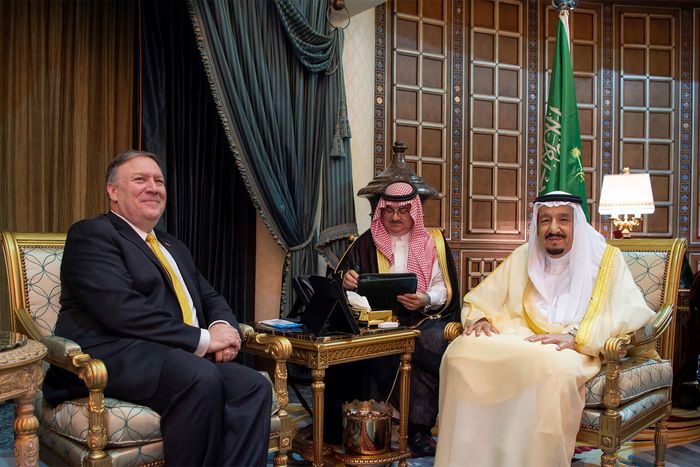
For the past three years, the U.S. government has been helping Saudi Arabia wage a war against Houthi rebels in Yemen. The U.S. has done this even though:
• The United States has no compelling interest in preventing the Houthis — who are enemies of Al Qaeda — from governing the Middle East’s poorest country, and Congress never approved American involvement in the conflict.
• Aiding the Saudi campaign in Yemen has made the U.S. complicit in war crimes that have claimed the lives of thousands of civilians, and put millions at the risk of starvation — a state of affairs that the European Union has deemed the “worst humanitarian crisis in the world.”
• Our commitment to defeating the Houthis has (reportedly) led the United States to make common cause with Al Qaeda militants in Yemen — which is to say, in a civil war between an Islamist group that is committed to killing civilians in the West, and another group that is not, the U.S. is intervening on behalf of the former.
• The Saudis dropped a U.S. missile on a school bus carrying 40 Yemeni children last month — and subsequently declared this strike legitimate, as intelligence suggested some Houthi rebels were also killed in the bombing.
• Allowing a totalitarian monarchy to kill thousands of civilians with bombs that are labeled “made in the USA” is a pretty good strategy for increasing the number of people in the Middle East who would like to commit terrorist attacks against the United States.
For these reasons and others, a bipartisan coalition in Congress has called on the Trump administration to withdraw its support for the Saudi campaign (which could scarcely exist without our government’s decision to supply Riyadh with planes, bombs, intelligence, and midair refueling services). Those legislators successfully inserted a provision into this year’s defense spending bill that would have barred the U.S. from refueling Saudi jets conducting bombing campaigns in Yemen — unless Secretary of State Mike Pompeo certified by September 12 that Saudi Arabia and the United Arab Emirates were taking meaningful steps to reduce civilian casualties, increase humanitarian aid, and negotiate a resolution to the conflict in Yemen.
On Wednesday, Pompeo did just that — assuring Congress that the Saudis were really, truly committed to trying their very best to massacre somewhat fewer children in Yemen. Defense Secretary James Mattis endorsed Pompeo’s conclusion, saying, “The Saudi-led coalition’s commitment is reflected in their support for these U.N.-led efforts … Alongside the Department of State we are actively engaged with Mr. Martin Griffiths, the U.N. special envoy, to achieve a negotiated end to this fighting.”
The United Nations director of Human Rights Watch, Louis Charbonneau, called the U.S. certification “ridiculous” in an interview with NBC News. “There is no indication that the coalition has been really trying to improve things. Citizens continue to be taking the brunt of the attacks; civilian infrastructure, hospitals, schools, continue to be hit.”
In unrelated news (that in no way calls into question the Trump administration’s commitment to minimizing atrocities in the Middle East), White House national security adviser John Bolton threatened Monday to sanction the International Criminal Court if it pursued an investigation into alleged American war crimes in Afghanistan.






























